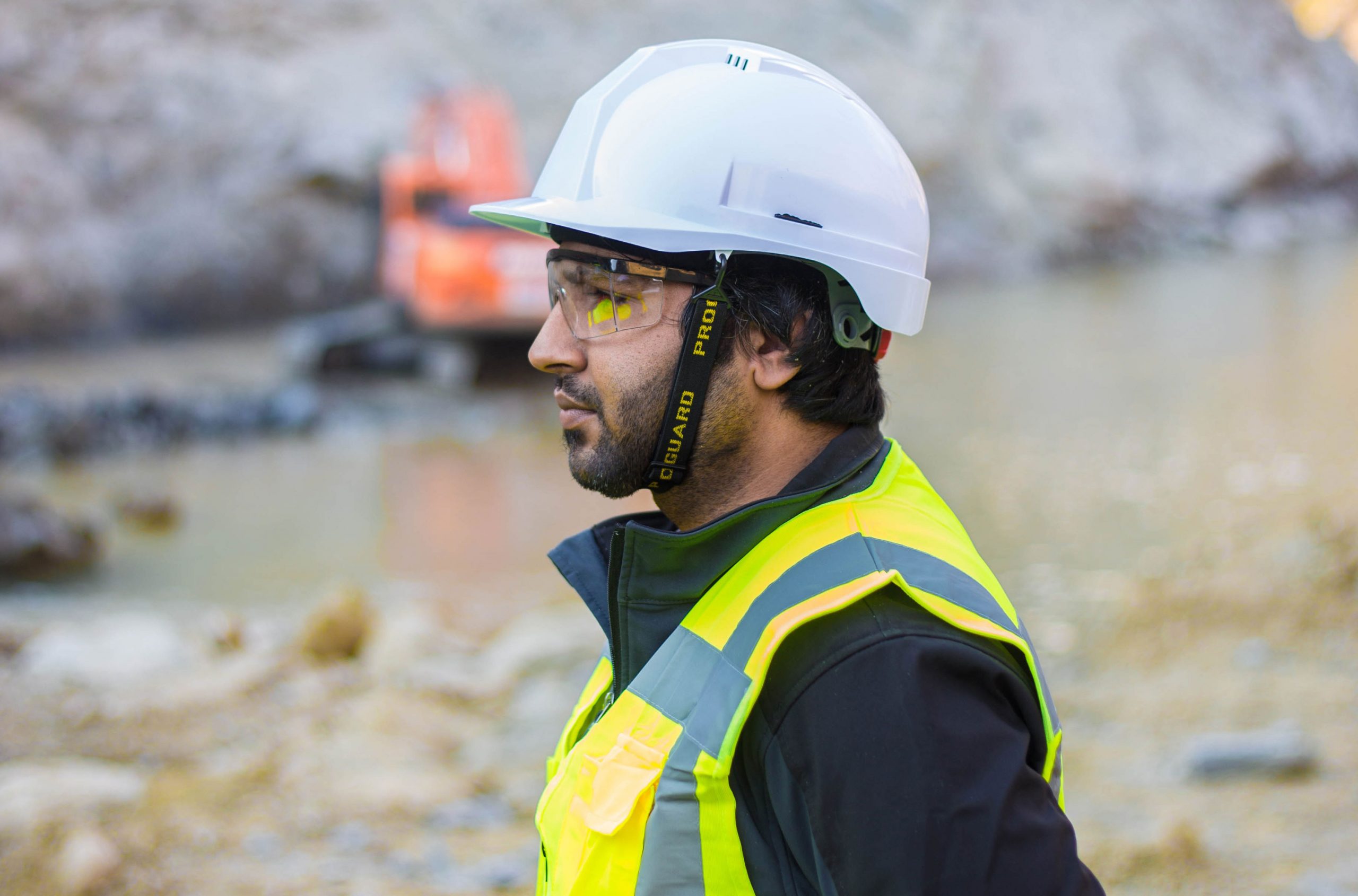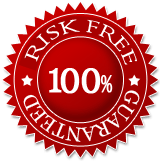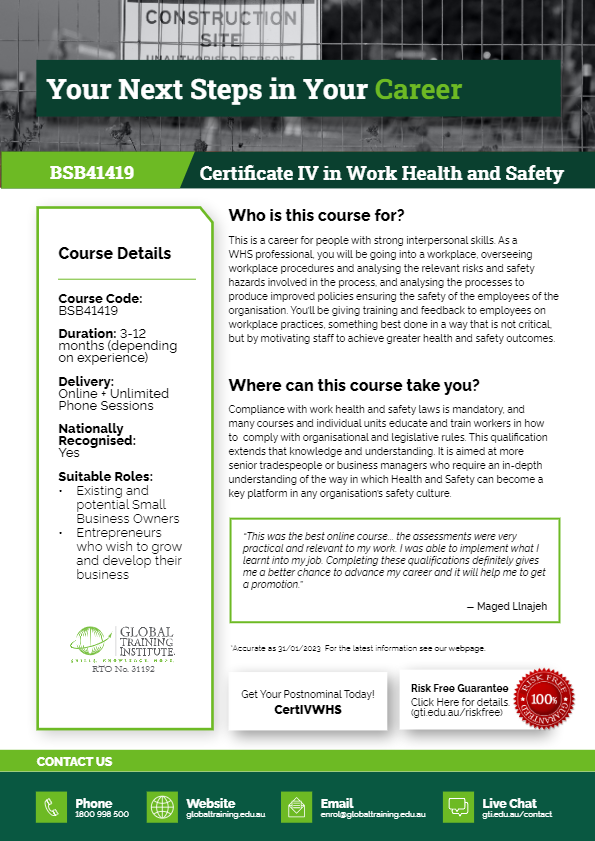Finally a management level qualification but with no pre-requisites for enrolment…
Where can this course take you?
Compliance with work health and safety laws is mandatory, and many courses and individual units educate and train workers in how to comply with organisational and legislative rules. This qualification extends that knowledge and understanding. It is aimed at more senior tradespeople or business managers who require an in- depth understanding of the way in which Health and Safety can become a key platform in any organisation’s safety culture, and a point of difference between just doing enough and actually embracing the spirit of the law.
Code: BSB41419
Units: 10
Length: 6-12 months (depending on experience)
Start Dates: Flexible, year-round
RPL Available: Yes
Delivery: Online
Funding Assistance: Click Here
Code: BSB41419
Units: 10
Length: 6-12 months (depending on experience)
Start Dates: Flexible, year-round
RPL Available: Yes
Delivery: Online
Funding Assistance: Click Here
Finally a management level qualification but with no pre-requisites for enrolment…
Where can this course take you?
Compliance with work health and safety laws is mandatory, and many courses and individual units educate and train workers in how to comply with organisational and legislative rules. This qualification extends that knowledge and understanding. It is aimed at more senior tradespeople or business managers who require an in- depth understanding of the way in which Health and Safety can become a key platform in any organisation’s safety culture, and a point of difference between just doing enough and actually embracing the spirit of the law.
Progress Your Career to become a…
This job involves identifying safety risks and workplaces hazards for your company, and developing strategies to deal with them, often conducting risk assessments and reporting on any safety incidents. You will also be teaching and inducting employees in appropriate practices and procedures to conduct a job safely and efficiently.
As an OHS Technician, you will be conducting inspections and tests on workplace procedures. You will be overseeing operations with an eye out for potential hazards – risks that those without your experience might not see – and applying the skills and knowledge to prevent any potential workplace incidents. This is the more technical side of workplace safety, often involving compiling reports on your test results to compare and improve the different approaches to safety.
As an events based WHS Manager, the day starts when you are on site, ready to make sure the relevant plans are in place to ensure a safe event for staff, performers, and the public alike. At the higher levels, this can involve coordinating with emergency services to facilitate public events safely.
Who is this course for?
This is a career for people with strong interpersonal skills. As a WHS professional, you will be going into a workplace, overseeing workplace procedures and analysing the relevant risks and safety hazards involved in the process, and analysing the processes to produce improved policies ensuring the safety of the employees of the organisation. You’ll be giving training and feedback to employees on workplace practices, something best done in a way that is not critical, but by motivating staff to achieve greater health and safety outcomes.
Who is this course for?
This is a career for people with strong interpersonal skills. As a WHS professional, you will be going into a workplace, overseeing workplace procedures and analysing the relevant risks and safety hazards involved in the process, and analysing the processes to produce improved policies ensuring the safety of the employees of the organisation. You’ll be giving training and feedback to employees on workplace practices, something best done in a way that is not critical, but by motivating staff to achieve greater health and safety outcomes.
Course Overview
COURSE: Certificate IV in Work Health and Safety
CODE: BSB41419
IDEAL FOR: HSE Managers, Senior Managers, CEOs
UNITS: 10
DURATION: 6-12 months (depending on experience)
DELIVERY: Online + Unlimited Phone Sessions
ENTRY REQUIREMENTS:
Age: 21 Years or over
Education: Year 12 pass or
– Certificate III and 2+ Years relevant Industry Experience +
– Proof of skills – Provide a current Resume or 2 Referees to testify to your ability to complete the course
RPL: Yes
START DATES: Flexible, Year Round
FUNDING ASSISTANCE: Click Here
Why complete your qualification with GTI?
-
Help gain your next Promotion
-
Formally recognise your work skills
-
Prove your experience
-
Learn new skills
-
No heavy theory, no essays, no exams
-
Online 24/7 access to resources and assessments
-
Training and assessments that relate to Your work and industry



